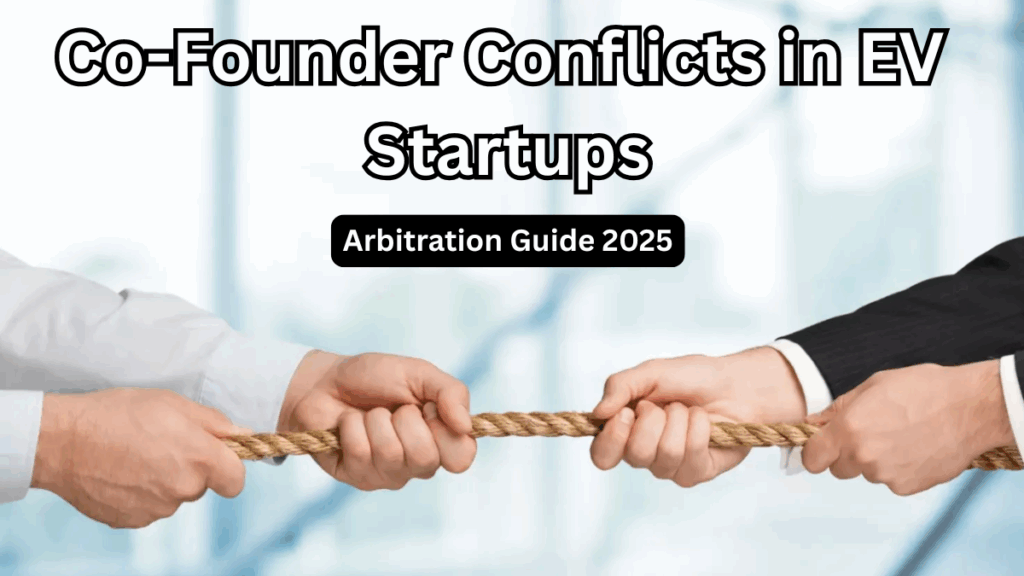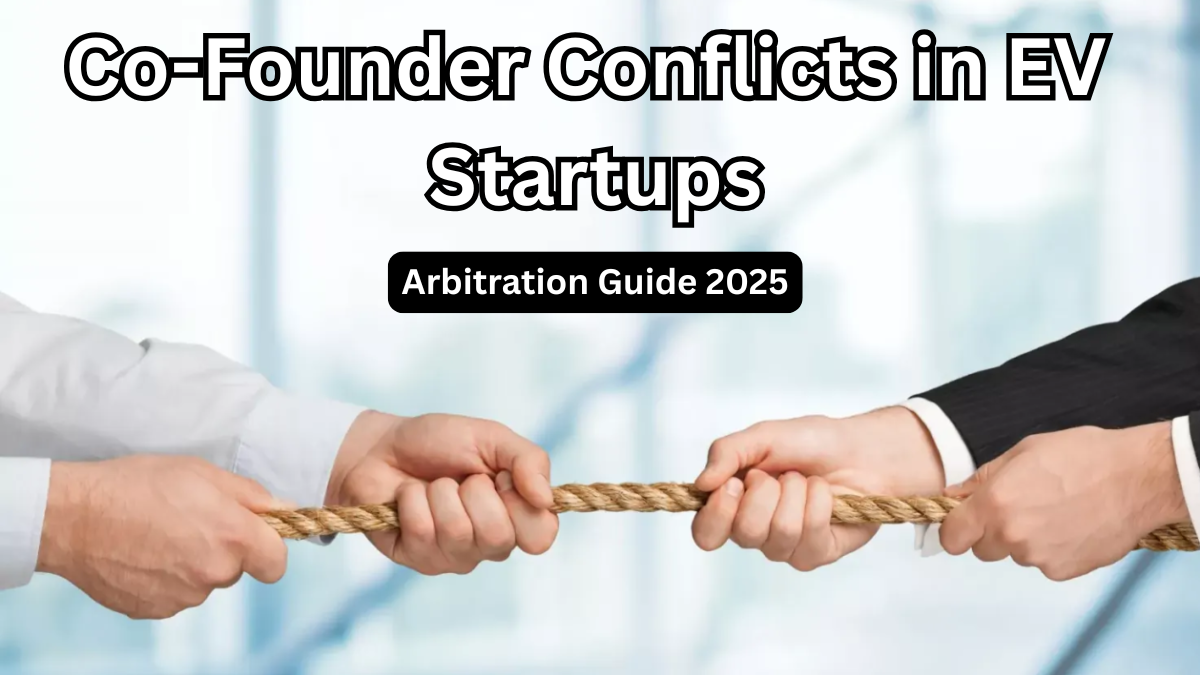Launching an electric vehicle (EV) startup sounds like a dream—sustainable innovation, cutting-edge tech, and the excitement of reshaping the automotive industry. But behind the scenes, one of the biggest disruptors is not a tech glitch—it’s co-founder conflict.
This guide explains why EV Startup Co-Founder Conflicts are rising in 2025 and how arbitration is becoming the go-to solution for resolving them.

Why Co-Founder Conflicts Are So Common in EV Startups
The pressure of building an EV startup is intense. Between racing to meet environmental goals and dealing with constant tech evolution, founders often find themselves in stressful situations.
Key Reasons for Conflict
-
Heavy investments and unclear ROI
-
Overlapping responsibilities or blurred decision-making
-
Sudden scaling issues or funding disagreements
-
Conflicting visions on business direction
Common Conflict Triggers
| Trigger | Description |
|---|---|
| Equity Splits | Disagreements on who owns what share of the startup |
| Leadership Disputes | Clashing on hiring, direction, or technology use |
| Financial Opacity | Lack of transparency in investor handling or expenses |
| IP Ownership | Disputes over who owns developed technologies or patents |
These types of friction often spiral into EV Startup Co-Founder Conflicts that affect company operations and credibility.
Why Arbitration Works for EV Startups
Court battles can take years—something a startup burning through cash can’t afford. Arbitration offers a private, faster, and more strategic alternative, especially relevant in automotive legal cases.
Key Benefits of Arbitration
-
Confidential dispute resolution outside the public court system
-
Shorter timelines than litigation, preserving startup momentum
-
Neutral arbitrators with subject-matter expertise in EVs
-
Legally binding decisions that help parties move forward
Real-World Example: Battery Tech Dispute
In 2024, a battery innovation startup in Bengaluru faced a major fallout. One co-founder wanted to sell their IP, while the other insisted on product development. With no clarity in the founding agreement, the company opted for arbitration.
The outcome:
-
IP ownership was split between parties
-
One founder exited via a structured buyout
-
The business stayed afloat and retained investor confidence
This case underscored how arbitration can provide structured solutions in automotive legal cases.
How to Prevent EV Co-Founder Conflicts
It’s not just about fixing conflicts—it’s about preventing them.
Essential Steps for EV Startup Founders
-
Create a clear founders’ agreement from day one
-
Define individual responsibilities and decision rights
-
Clarify IP ownership and usage policies
-
Include an arbitration clause for all disputes
This is especially important for founders in tech-driven, capital-intensive ventures where legal clarity is critical.
2025 Trends: Arbitration in Automotive Legal Cases
The use of arbitration is growing in the EV space due to the complex nature of disputes and the urgency for resolution.
What’s New in 2025?
-
Investors increasingly require arbitration-ready legal documents
-
Arbitration panels are adding automotive experts
-
Cross-border EV ventures are turning to international arbitration for neutral resolutions
EV founders are now seeing legal readiness as a part of business strategy—especially in a climate where EV Startup Co-Founder Conflicts can stall innovation.
FAQs
What makes co-founder conflicts more common in EV startups?
The combination of financial pressure, rapid tech development, and unclear role definition makes co-founder friction more likely in EV businesses.
Why is arbitration preferred over court litigation?
Arbitration is faster, private, and less expensive than traditional court cases—making it ideal for resolving automotive legal cases without public exposure.
Can arbitration handle complex IP disputes?
Yes. In fact, it’s often preferred for sensitive intellectual property issues, which are central in EV Startup Co-Founder Conflicts.
What should a founder agreement include?
It should include role definitions, equity breakdowns, exit strategies, IP ownership clauses, and a binding arbitration clause for resolving disputes.
Click here to learn more
